Above: 1908 Drawing & Technical Class at the Symonds Street School, image courtesy of Auckland Grammar School Archives.
Archives are more than just a collection of official records, they also serve to safeguard and celebrate the memories and achievements of their communities. In the case of schools, archives are increasingly seen as a vital component of alumni engagement programmes. By sharing their archives, schools not only preserve their community’s special heritage, surfacing important historical milestones, but also foster a greater sense of belonging and identity.
The responsibility for many school archives is now being shared between archivists and development or advancement offices, recognising that people who value reconnecting with classmates or enjoy researching details from their school days, might also want to help the next generation of students in some way.
To facilitate this, many schools are developing digitisation strategies, supported by online platforms like Recollect, and inviting wider public access and engagement. With a few clicks, individuals can explore yearbooks, newsletters, magazines, photographs, regalia, uniforms, and other materials that might otherwise remain stored away in boxes. At the same time, they can enrich the record for future generations, sharing their recollections, celebrating the achievements of famous alumni, and even contributing their own photos of fundraising dinners or school productions right after the event!
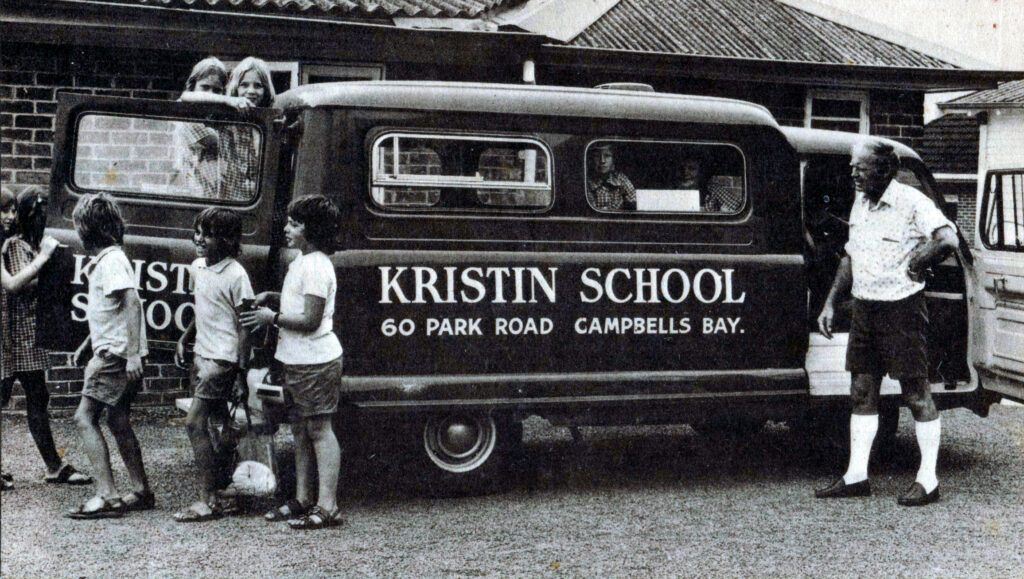
NZMS recently spoke with two schools to understand how their archives have benefited from online engagement, increased accessibility, and digitisation.
Auckland Grammar School
Auckland Grammar School is a public secondary school for boys with a small boarding facility. It was founded in 1869 and since 1916 has been located in Epsom, Tāmaki Makaurau Auckland. The school’s archivist and historian Peter Stanes has a long relationship with the school — as well as being an Old Boy, he was on the Headmaster’s Council for over seven years during the 1980s and 90s, before moving on to volunteer at the school where he later took on the role of archivist.
“I have been interested in history for a long time! As well as compiling a book about my family’s history, I also volunteered for the Auckland War Memorial Museum for a number of years. I was a tour guide and I also worked in the archives, where l completed a project for the museum, preparing a shelf list for 15,000 items. That is what first got me interested in archiving and where I learnt some techniques and came to understand something of archival theories.”
— Peter Stanes, Archivist and Historian, Auckland Grammar School
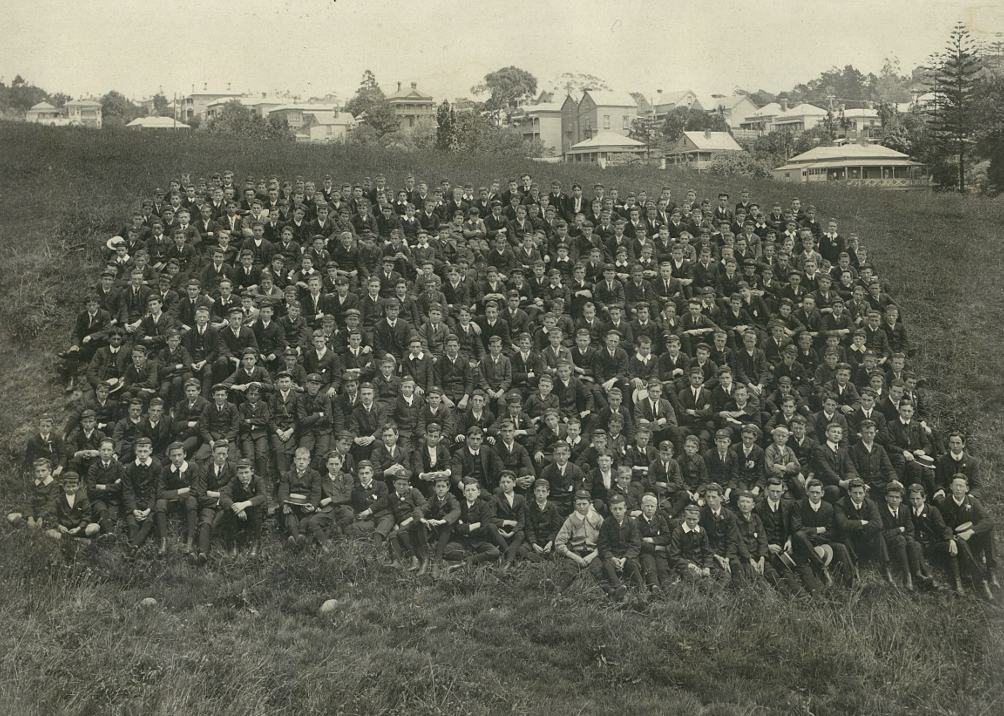
The launch of Auckland Grammar’s Recollect site in late 2018 was timed to coincide with the school’s 150th celebrations. It now provides public access to over 18,000 photos, 840 videos, School Lists, Chronicles, Ad Augusta magazines, and more. It serves as an important resource for staff, students, researchers, and anyone with a general interest in New Zealand history. All items in the archive are fully searchable and available for download, apart from the videos, and Peter is continually adding new content as the physical archive grows.
Kristin School
Kristin School is a private co-educational school for students from early learning to year 13, situated in Albany on Tāmaki Makaurau Auckland’s North Shore. It was founded in 1973 by a small group of parents and is now owned by the Kristin School Charitable Trust, a non-profit organisation. Kristin Archives Online was established earlier this year and is overseen by Kristin’s Community Relations and Marketing Manager, Victoria Morris.
“Part of my role is sharing stories that help people feel part of a community or a place. It might be sharing alumni stories of what they have gone on to do, or the stories of the origins of the school. Kristin has quite a unique origin story, the school is only 50 years old and was founded by families – a group of parents got together to form the school, fundraise, and worked hands-on to literally build the facilities. Our founders created some meaningful values for the school, which are still our values and lived out today. So our origin story helps to ground the school today – it’s about telling stories about the past that have relevance in the present, and the archives support us to do that.”
— Victoria Morris, Community Relations and Marketing Manager, Kristin School

The school launched their Recollect site earlier this year, as part of 50th Jubilee celebrations initially uploading photos of recent events, communications, publications, and memorabilia. They are very aware that their strategic plan to create and share the archives has also created a value framework that will safeguard the school’s heritage and ensure it is accessible to future generations.
“The heritage of our school is so precious, especially in a digital age where photo albums can be relegated to basement boxes, and thousands of more recent pictures might be stored on phones. People aren’t likely to have access to photos from their school days. Bringing them to the forefront again for people is just delightful – I love it. It’s a really powerful way to engage a community and to bring them together. And it’s a little bit like an online reunion when you share them on social media and people get chatting. It’s a wonderful way of bringing your heritage and those memories to life for our community.”
— Victoria Morris, Community Relations and Marketing Manager, Kristin School
Finding Value
Both schools hold diverse and valuable items within their archives that offer a glimpse into their distinctive histories and tell stories that shape each school’s identity. For example, Auckland Grammar has an extensive collection of items that have been digitised and uploaded to Recollect, including a range of medals and badges dating back to 1871. Some of the earlier medals were designed and cast by Anton Teutenberg, a German immigrant who became a well-respected stonemason, carver, engraver, medallist, and jeweller in New Zealand. He is known for designing and carving gargoyles and other decorations for the Auckland Supreme Court buildings. The medals that Teutenberg created for Auckland Grammar were awarded to students for their academic achievements, sporting ability, and cadet performances. However, the true value of these items lies in the knowledge and insights they can provide.
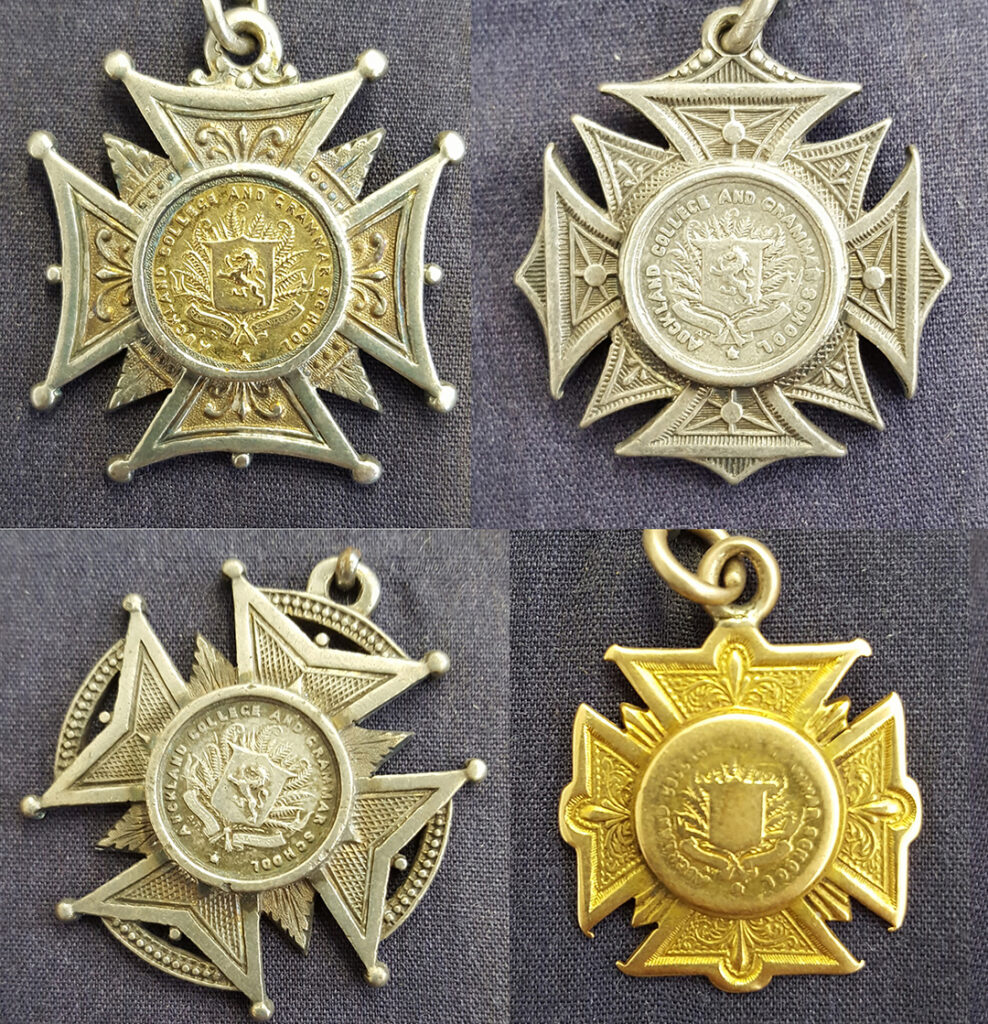
“Auckland Grammar has a publication called a School List, which annually records all of the boys in each form of the school. Notably, it also includes quite a lot of commentary from the current headmaster about the school and the time it was issued. These publications go back to 1882, a little while after the school was established, but they are all digitised. The other magazine we have which is equally valuable is the school Chronicle. Our archive holds the Chronicle from its first year of publication in 1913. The value and the interest of those lies not only in allowing people to look at what went on in the school in those early years, but it also gives a very interesting social commentary of what life was like in Auckland, and to some extent New Zealand, at that particular time.”
— Peter Stanes, Archivist and Historian, Auckland Grammar School
Kristin School’s Recollect site is relatively new, but they already have a large collection of material online. The project influenced Victoria to reflect on the way archives invite us to consider the passage of time and the impact this can have on our lives.
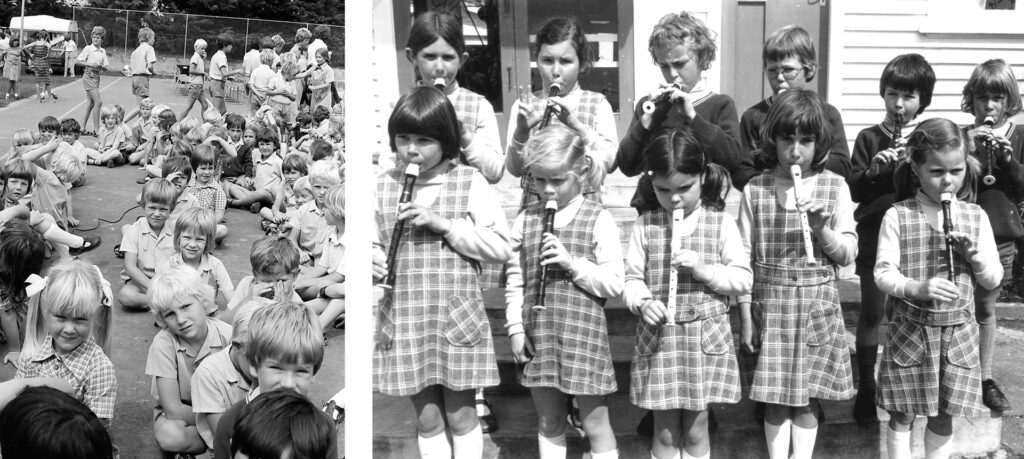
“The most valuable items in our archive are those that recall memories from all the great times people have spent at the school as well as those that reflect on how things have changed and grown over time. There are plenty of photographs that are quite unique in our collections. There are some that help you realise how much times have changed but they often also reveal how things have stayed the same. When you see students being happy and enjoying themselves… that is pretty universal, and it happens throughout history. It’s quite nice to see photos featuring the same events that happen every year and it’s just a different generation.”
— Victoria Morris, Community Relations and Marketing Manager, Kristin School
Developing Community Engagement
Community engagement with online archives is often an evolving process that becomes richer with the continuous addition of content. Feedback from the community is vital in shaping the archive’s growth, leading to new knowledge and discussions about including specific details or histories based on community interests.
“Early this year, an individual approached me who had a distant family relationship with an Old Boy who was awarded the Albert Medal, for an act of extreme bravery. Living holders of the Albert Medal later had their awards translated by the Crown in the UK to the George Cross. We had no knowledge that Auckland Grammar had somebody with that status. The George Cross has the same status and level of importance as the Victoria Cross. The George Cross (and the Albert Medal before it) applies to civilian acts of extraordinary bravery or acts by military people who are not in the face of the enemy. In other words, they were not in battle at the time, but they did something very brave while in the forces. It was pointed out that we’ve got a lot of information about Auckland Grammar’s Victoria Cross holder but as at earlier this year there was nothing within the School about this Old Boy’s award!”
— Peter Stanes, Archivist and Historian, Auckland Grammar School
Due to time pressure ahead of their 50th celebrations, Kristin School prioritised digitising items that would be the most engaging to their community, starting with class and staff photos, key publications, yearbooks, and the school magazine Kaleidoscope. Victoria explains that the next priority is to digitise and upload informal photographs — of which there are thousands in their archive.
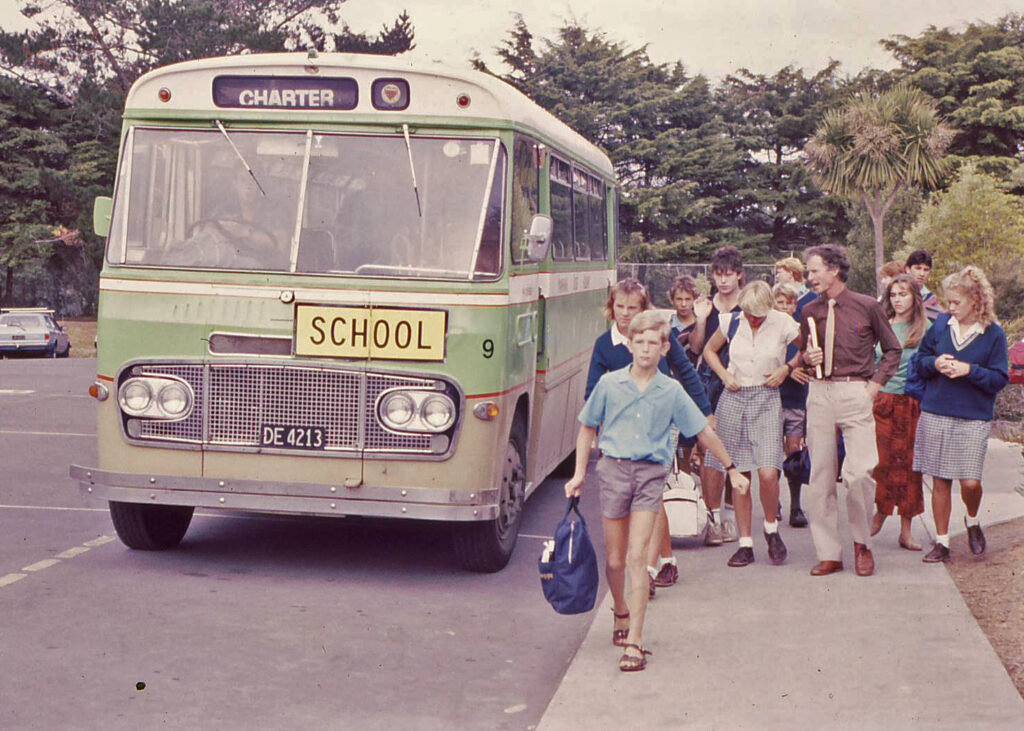
“We are slowly working our way through those… in some ways, it’s actually an advantage not to have everything on the site right at the start. Otherwise, people will go to have a look, they might browse the site, and spend some time reminiscing but there won’t be any real reason to go back again. Gradually uploading more content means there’s a reason to return, and we can promote this on social media by saying, ‘Hey, we’ve uploaded 100 photos from the 1980s on our Kristin Archives platform. Go over and have a look and see if you recognise any faces!’ It gives us another way to engage people with the site rather than it being static and unchanging.”
— Victoria Morris, Community Relations and Marketing Manager, Kristin School
Recollect fosters community engagement by allowing members to contribute and upload their own videos, documents, and other important historic material. The opportunity for users to participate in this way adds a meaningful dimension to the archive, reinforcing a sense of community, ownership, and collaboration — and a moderation function means site managers can check and approve new content before contributions go live.
“We’re always delighted to have information uploaded to our Recollect site – we’re always going out to people, advertising through magazines and presentations, encouraging our community to donate all sorts of memorabilia. That is actually where we get a number of our items for the archive, particularly early form photographs. We get a lot of people contacting us to make donations of material – in fact, I was out yesterday picking up five photographs from the sister of an Old Boy who had recently passed away”
— Peter Stanes, Archivist and Historian, Auckland Grammar School
Choosing a platform and going online
Prior to 2019, Auckland Grammar was using another platform to upload digitised content online. Some years before, NZMS had gone on-site to digitise the large collection of framed photos found in the school’s Great Hall and it soon became evident that the quantity of material and range of formats needing to be digitised required a more rigorous archival system and more powerful search functionality than the platform they were using, so the decision was made to look at other options.
“We eventually settled on Recollect and the site went live with the material that had been on the other site at the end of 2018. Then the rush was on to put a significant amount of information on as quickly as possible. Originally, the purpose of the Recollect site was to assist in the advancement of the School – as a part of all the elements that go into the Development Office. These elements include looking after the alumni in conjunction with the Old Boys Association as well as handling the media aspects of the School and the events that take place, particularly related to fundraising. The online archive was seen as a necessary and helpful building block in the whole mix of things that come together to create the advancement process in the School. ”
— Peter Stanes, Archivist and Historian, Auckland Grammar School
Like Auckland Grammar’s Sesquicentennial, Kristin’s looming 50th Jubilee was the catalyst to bring structure and focus to their archival collections and commit to an online community engagement platform.
“The site has been a great tool to draw people into the events that we are hosting and reconnect them with the school. In the build-up to our 50th Jubilee, most of the content that we shared on social media was reminiscent material and heritage photos that related to our history. Through that, we’ve managed to demonstrate the value of the archives and our Recollect platform.”
— Victoria Morris, Community Relations and Marketing Manager, Kristin School
Auckland Grammar has made small but important strategic changes in their use of Recollect since its launch. Details of current activities and events have always been shared on the school’s main website, and this was the plan for the upcoming 150th events in 2019, while the archives platform was earmarked as a repository for historical records, memorabilia, and school magazines. Faced with the volume of activities planned in 2019, details such as photos of each completed activity were immediately uploaded onto their Recollect site and social media channels or links from the school website were used to direct people there. This helped to drive engagement and made it possible for the school to share more content without ‘cluttering’ its website. For example, The School’s History page provides several links to the Recollect site for people who might want to dig deeper into the list of important milestones.
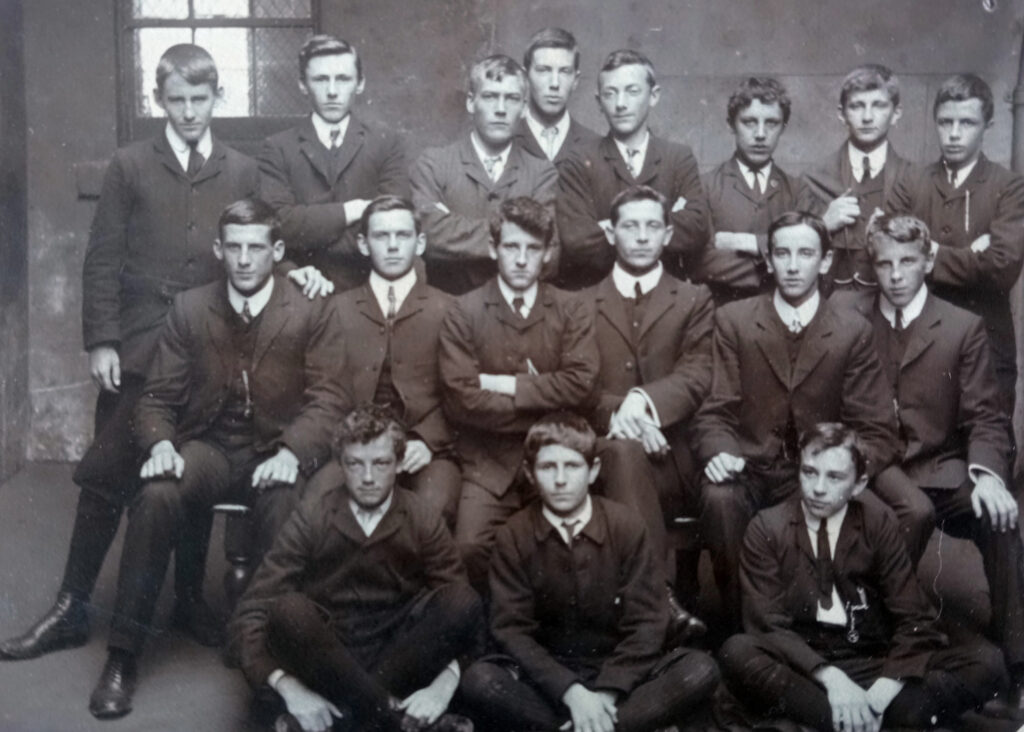
However, with long-established schools like Auckland Grammar, the passage of time also means that the information found within its archives often extends beyond the immediate school community. Local school history is an increasingly important resource for individuals who are researching topics related to regional and national history as well.
“The Auckland Grammar community is extensive because of the size of the school and the fact it has been going for 153 years. The community includes existing pupils and staff, Old Boys and past staff, parents of existing and past pupils, and other relatives of past pupils. Since we’ve had the Recollect site up and running, our community has expanded further to include all sorts of people who aren’t directly involved with Auckland Grammar.
“The reason for that is partly the information that can be found in the archive…it not only reveals information about the school, but it provides information about the social development of Auckland and New Zealand over that period, revealing how attitudes have changed. For example, there are substantial amounts of material from throughout the Boer War, WW1, and WW2 which gives an interesting commentary on what people thought about war in general; what their reactions were to it, how loyal they were, and how important King and Country were to them. It’s very interesting to look at how those sorts of attitudes have changed over time. That is one of the reasons why the community has spread to include people like family history researchers, sociologists, and historians who don’t necessarily have any direct involvement with the school.”
— Peter Stanes, Archivist and Historian, Auckland Grammar School
As noted at the outset, archives are more than a collection of official records or a repository to preserve fragile documents. They can also serve as invaluable tools for teaching research-related skills to students and provide support for the delivery of Aotearoa New Zealand’s histories curriculum.
In the face of an overwhelming amount of information online and debates about the veracity of online sources, access to primary source material offers students an opportunity to examine eyewitness accounts, explore a range of perspectives, and understand how values and attitudes change over time. Alongside helping students gain a deeper understanding of their school’s heritage, the local community, and even the broader historical narrative, school archives also create a learning environment that can be leveraged to nurture critical thinking, historical analysis, and a sense of connection to the past.
“Students certainly access the site; they use it for family history and researching the life of certain eminent Old Boys that they might’ve been asked to do a project about. We are increasingly utilising it within the school to explore aspects such as the social development of Auckland.”
— Peter Stanes, Archivist and Historian, Auckland Grammar School
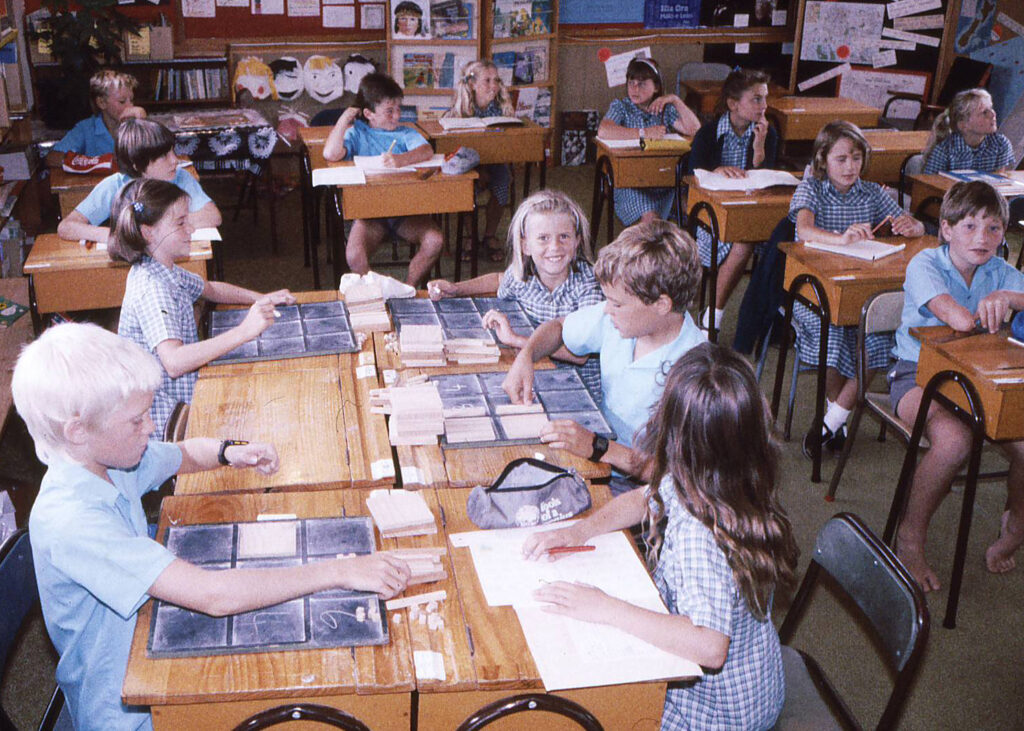
“I’d also like to build in more opportunities for the current school community to use archives for learning – that would be really cool and will be another stage in the project. As we do every year, we hold reunions with different year groups, so we’ll look to use the site for that kind of thing as well, to curate content that’s relevant to them.”
— Victoria Morris, Community Relations and Marketing Manager, Kristin School
Advice for Other Schools
Both Peter and Victoria shared valuable insights and advice for schools interested in moving their archives online and fostering community engagement. Below are some of the key takeaways:
- If an archive is going to be useful, it must be accessible.
- Invest in a platform that does everything you require, e.g., does it have a large storage space or an intuitive search engine?
- Don’t underestimate how time-consuming the project will be, but don’t let this stop you!
- Think carefully about the structure of the information before you put it onto the platform – you don’t want to have to go through a whole lot of changes in the future!
- Make sure you have a sizeable amount of items digitised and uploaded from the beginning, then while you are continuing to upload items, start improving and fine-tuning metadata to improve user-friendliness and accessibility.
- Identify how the online collections will be used by the target audiences – that will help you determine how to set up the accessibility, structure, and storage.
- Consider (and respect) the copyright of the items in the archive.
- Ensure your online archive allows for community engagement, e.g., does it allow people to upload items, contribute information, or suggest edits and identify errors?
Archives can play a crucial role in preserving and celebrating the unique history and identity of schools. It captures the milestones, achievements, and stories that shape the school community, fostering a sense of pride, belonging, and continuity. School archives also serve as educational tools, promoting research skills and a deeper understanding of history. Adopting online content management platforms like Recollect allows school archives to become more accessible, engage a wider audience, and facilitate stronger community involvement. By preserving and sharing the past, school archives ensure that the legacy and traditions endure, inspiring present and future generations to connect with their school’s heritage.
References and Resources
- Caring for school records. (n.d.). Norfolk Record Office. https://www.archives.norfolk.gov.uk/our-services/advice-on-collection-care/caring-for-school-records
- Council of Australasian Archives and Records. (2007). Archives Matter! https://www.archivists.org.au/documents/item/10
- Graham, E. (2018). 5 Reasons Why Web-Accessible Archives are Important. George Blood. https://www.georgeblood.com/news/2018/7/17/5-reasons-why-web-accessible-archives-are-important
- Hayman, N., & Paull, N. (2008). Preserving the past: becoming the archivist in the school library. Schools Catalogue Information Service. https://www.scisdata.com/connections/issue-107/preserving-the-past-becoming-the-archivist-in-the-school-library/
- M, L. (2012, May 29). School Archives: making the most of your local resources. The National Library of New Zealand. https://natlib.govt.nz/blog/posts/school-archives-making-the-most-of-your-local-resources
- Primary sources — how to use them. (n.d.). National Library of New Zealand. https://natlib.govt.nz/schools/teaching-and-learning-resources/teaching-tools-resource-guides/primary-sources-how-to-use-them
- Şentürk, B. (2013). The Use of Archives in Education: Examples from Abroad. International Journal on New Trends in Education and Their Implications, 4(1), 10.
